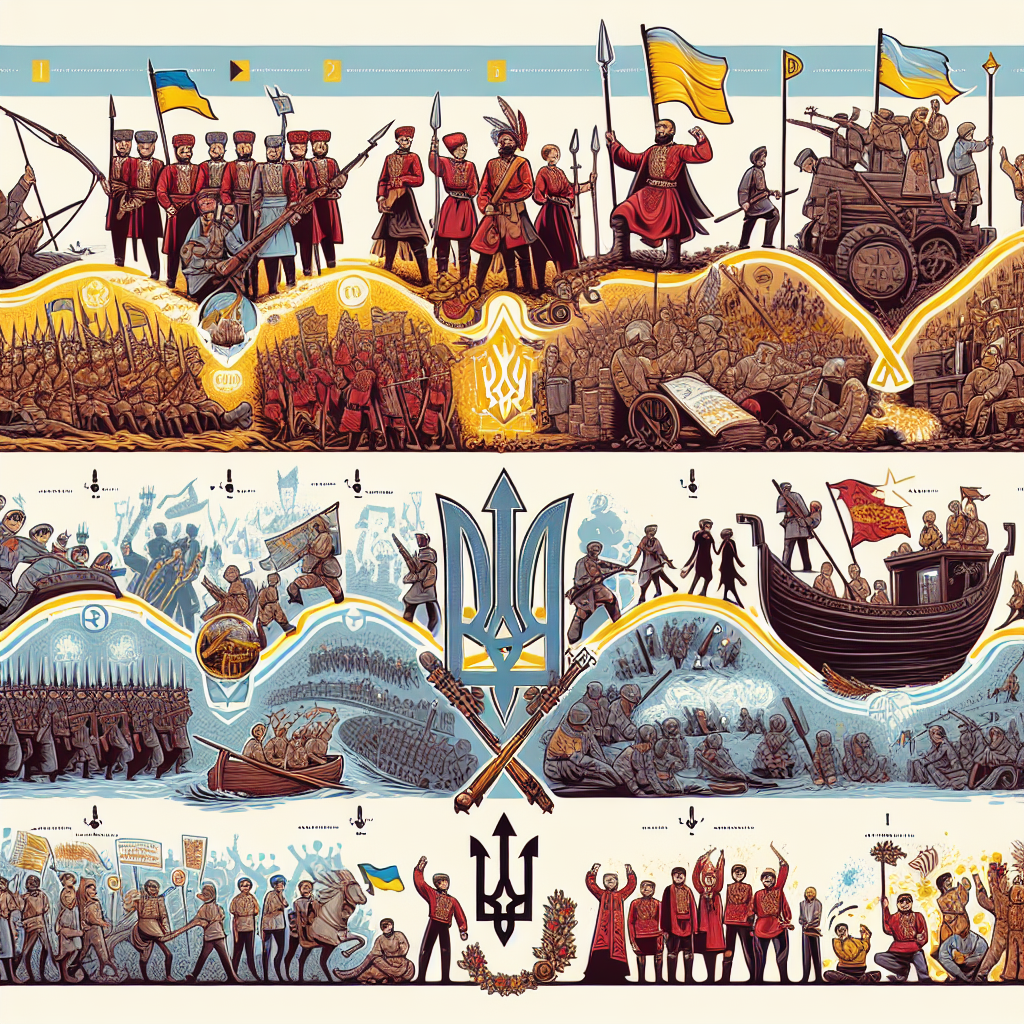The Evolution of Ukrainian National Identity Amidst Conflict and Turbulence
The history of Ukraine is not just a tale of geographical shifts and political agreements; it's a stirring saga of endurance and identity, being shaped painfully by the hands of both tyrants and liberators. Ukraine's path has been anything but linear, marked by the horrid scars of wars and the silent resilience that grows from survival against all odds. Analyzing the recent and historical dynamics of this Eastern European nation offers a profound insight into how adversity fosters a distinct national identity.
Historical Backdrop: The Famine That Forged Fear
The ghosts of the past linger heavily over Ukraine, with the early 1930s being particularly ghastly due to the man-made famine known as Holodomor. This catastrophe was orchestrated under Stalin's regime, an appalling attempt at suffocating the whispers of independence among the Ukrainians. The severity of this atrocity can hardly be overstated—it was a calculated extermination through starvation.
When the Nazis marched into Ukraine in the 1940s, they were initially perceived as potential liberators. The Ukrainian populace, severely traumatized by the communist-induced famine, saw the German soldiers as a lesser evil compared to the horrors they had endured under Soviet rule. However, this illusion was shattered as brutally as it was formed. The Nazis soon imposed their own brand of terror, turning the hopeful liberators into yet another oppressor forcing Ukrainians into a reevaluation of their circumstances.
The Irony of Russian Aggression
[https://www.youtube.com/watch?v=-MJioykUJtI]
Fast forward to more recent history, the annexation of Crimea in 2014 and the ongoing conflict in Eastern Ukraine have become the crucibles for the forging of a modern Ukrainian identity. The irony in these conflicts lies in the fact that Russian aggression, intended to assert dominance and possibly weaken Ukraine's resolve, has instead galvanized a unique form of unity among Ukrainians.
As recounted in the source, the brutality displayed by Russian forces against the very populace that might have once had sympathies for Russia—due to cultural and historical ties—has stripped away any remnants of fraternal bonds. The result has been a stark and resolute form of nationalism, born from the ashes of shattered communities and lives.
The Role of War in Shaping Nations
War, while destructive, is often a powerful catalyst for national identity. The Ukrainian situation demonstrates how external threats can accelerate the process of self-definition in a country. Citizens of Ukraine, through repeated aggressions, have come to see themselves distinctly separate from their aggressor, defining themselves in opposition to the entity that seeks to subjugate them.
This crystallization of identity through adversity is not unique to Ukraine; history is riddled with similar transformations. What stands out in the Ukrainian context is the speed and intensity with which these identities have been forged, renewed by each act of aggression.
Putin's Unintended Consequence
In an unintended twist of fate, Vladimir Putin's military strategies in Ukraine have served not only to reinforce Ukrainian sovereignty in the eyes of the international community but also to strengthen internal unity and nationalism. This phenomenon reflects a miscalculation on the part of Russian leadership, assuming that military might can quell the spirit of nationalism. Instead, it has fueled it, binding the Ukrainian people closer together in defiant opposition.
As destruction and despair grip parts of the country, a new narrative of resilience and struggle emerges, rewritten with every bomb and every act of resistance. This new narrative is not just about political sovereignty but about the cultural and spiritual survival of a nation.
Looking Forward: The Future of Ukrainian Identity
As Ukraine continues to navigate through these tumultuous times, the development of its national identity is likely to keep evolving. With each challenge, the contours of this identity get sharper, driven by a collective aspiration to maintain sovereignty and cultural integrity.
The lessons learned here extend beyond the borders of Ukraine, serving as a poignant reminder of the complexities of national identity in the modern world. They highlight how deeply intertwined history, politics, and culture are in the shaping of a people's identity.
In conclusion, examining Ukraine's journey through the lens of oppressive regimes and conflicts reveals a remarkable story of resilience and identity. This narrative is not just about survival but about the transformation that comes from enduring and overcoming immense hardships. Ukraine’s enduring spirit offers profound insights into the human capacity for adaptation and unity in the face of adversity.
Related News
- The Catalysts of Nation-Building: A Look Back and Forward
- The Paradox of Resilience: Unpacking the Soviet Union's Unyielding Spirit in WWII
- Peering Into the Abyss: The Shadow of Global Conflict in the Modern Era
- The NATO Enigma: Eastern Europe's Quest for Security and Prosperity
- Navigating the Tightrope: The Delicate Dance of Diplomacy with Russia
